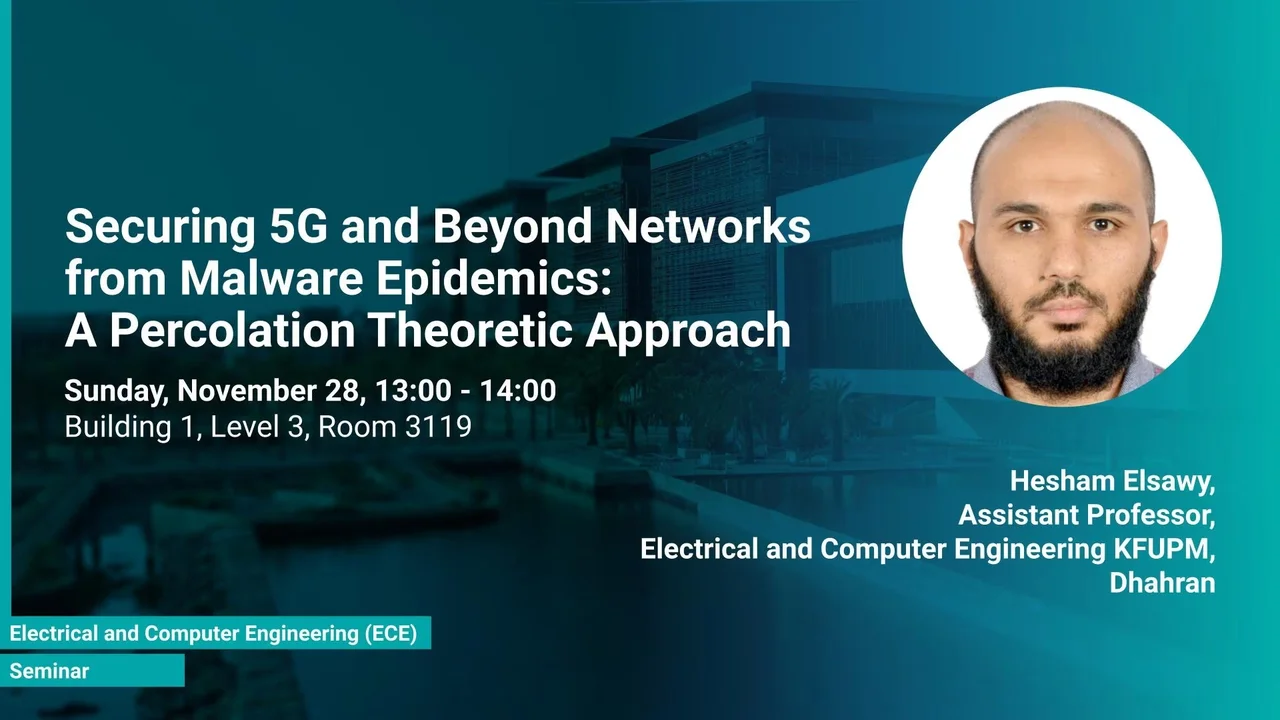
Securing 5G and Beyond Networks from Malware Epidemics: A Percolation Theoretic Approach
This talk will introduce and motivate a percolation theoretic approach to characterize and thwart malware diffusion in dense wireless networks. First, a brief tutorial on percolation theory will be introduced. Then, the talk will explain the utilization of percolation theory to develop security countermeasures for malware epidemics in 5G and beyond networks.
Overview
Abstract
In the foreseen 5G and beyond networks, billions of wireless devices will participate in big data aggregation and smart automation in order to interface the cyber and physical worlds. Such large-scale ultra-dense wireless connectivity is vulnerable to malicious software (malware) epidemics. In particular, malware worms can exploit different forms of device-to-device communications to stealthily compromise large numbers of devices without being noticed by security servers at the core network. Compromised devices can then be used by adversaries to remotely launch cyberattacks that cause large-scale critical physical damage and threaten public safety. This talk will introduce and motivate a percolation theoretic approach to characterize and thwart malware diffusion in dense wireless networks. First, a brief tutorial on percolation theory will be introduced. Then, the talk will explain the utilization of percolation theory to develop security countermeasures for malware epidemics in 5G and beyond networks.
Brief Biography
Hesham ElSawy is an assistant professor at King Fahd University of Petroleum and Minerals (KFUPM), Saudi Arabia. Prior to that, he was a postdoctoral Fellow at King Abdullah University of Science and Technology (KAUST), Saudi Arabia, a research assistant at TRTech, Winnipeg, MB, Canada, and a telecommunication engineer at the National Telecommunication Institute, Egypt. Dr. ElSawy received his Ph.D. degree in Electrical Engineering from the University of Manitoba, Canada, in 2014. He received several academic and best paper awards including the 2020 IEEE COMSOC Best Tutorial Paper Award, the 2017 IEEE COMSOC Best Survey Paper Award, and the 2018 IEEE ComSoc Outstanding Young Researcher Award for Europe, Middle East, & Africa Region. His research interests include statistical modeling of wireless networks, stochastic geometry, queueing analysis, and cybersecurity for wireless networks.